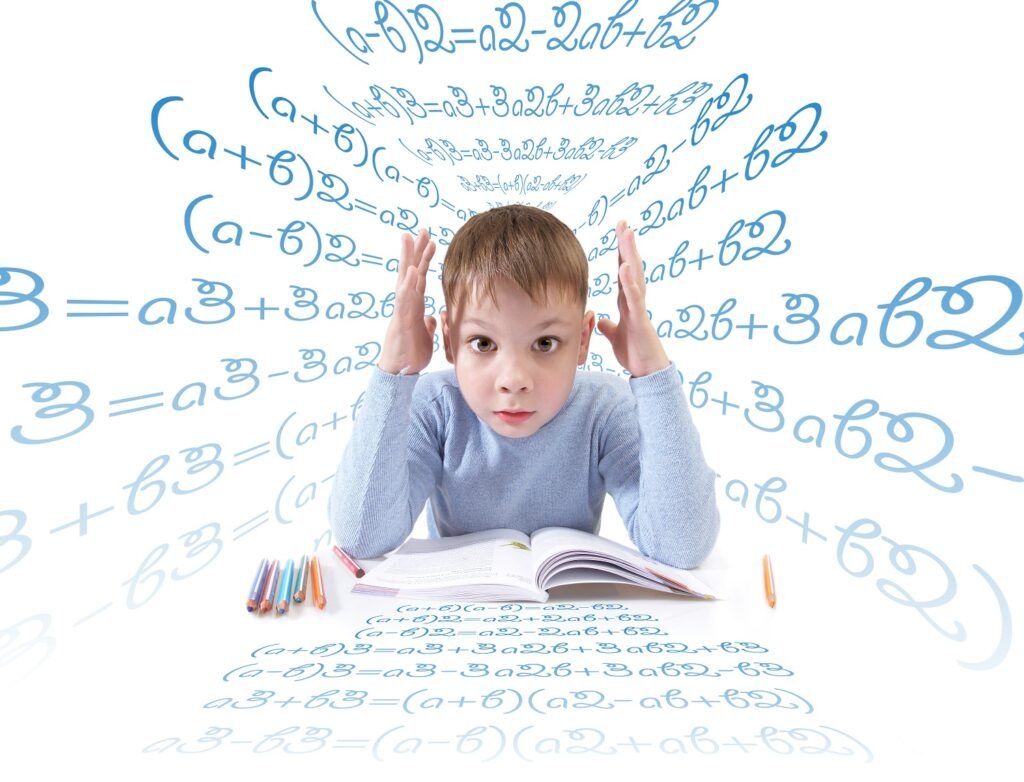Is your child curious about math? Or maybe you are looking for a way to help them develop their counting skills in a way that is not only effective but also fun? If so, mental arithmetic may be an excellent tool to enhance your child’s mathematical potential. In this article, we will learn everything you need to know about mental arithmetic for children!
What is mental arithmetic?
Mental arithmetic is a mathematical technique that involves performing calculations mentally, without using any traditional writing tools or calculators. Children learning mental arithmetic develop the ability to count quickly and accurately in their minds. This not only helps in understanding math but also strengthens overall concentration and analytical thinking skills.
Why is it worth teaching children mental arithmetic?
There are many benefits associated with introducing mental arithmetic into children’s education. First, it helps strengthen the child’s mathematical abilities by exercising the mind in an interactive and exciting way. Children quickly realize that math can be fascinating and provide a lot of satisfaction.
Second, mental arithmetic develops children’s self-confidence. The ability to perform complex calculations in their minds builds a sense of achievement and motivates them to further improve their mathematical skills. Children who master mental arithmetic are usually more willing to engage in learning math in general.
Benefits of mental arithmetic.
- Develops logical thinking and analytical mind: mental arithmetic exercises engage both hemispheres of the brain, which helps develop analytical thinking skills and problem-solving abilities.
- Increases confidence in math: mastering mental arithmetic gives children a sense of success and confidence in mathematical calculations.
- Improves concentration and attention.
- Teaches problem-solving strategies.
- Enhances quick thinking skills and memory: the ability to perform calculations in the mind allows for faster and more efficient information processing. Children need to remember intermediate results and numbers, which leads to improvements in both short-term and long-term memory.
Disadvantages of mental arithmetic for children.
Mental arithmetic for children is undoubtedly a fascinating world full of possibilities. However, like any skill, there are certain drawbacks that are worth considering.
- Overloading the Mind
One of the main drawbacks of mental arithmetic is the risk of overloading the mind. Introducing too intense mental training can lead to excessive stress and mental fatigue in children. This is particularly important at a young age when the mind is developing and also needs rest.
Tip: Introduce moderation in mental arithmetic training. Give children an appropriate amount of time to rest and play to avoid overload.
- Boredom and Motivation
Although mental arithmetic can be exciting, there is a risk that children may become bored if they engage in it too intensely or without considering their interests. Monotony in exercises can lead to a loss of motivation to continue learning mental arithmetic.
Tip: Introduce variety in training. Choose games, puzzles, and exercises that are interesting and engaging for children. Allow them to choose what they would like to do to maintain their interest.
- Lack of Understanding of Conventional Mathematics
There is a risk that focusing solely on mental arithmetic may cause children to skip basic learning of conventional mathematics. Understanding fundamental concepts and mathematical processes is still essential in school and everyday life.
Tip: Combine mental arithmetic with learning mathematics in a traditional way. Encourage children to develop both mental skills and conventional mathematical skills.
- Competition and Stress
While healthy competition can be motivating, excessive pressure and stress related to competition can lead to negative emotional outcomes. Children may feel bad if they do not achieve expected results or are outperformed by others.
Tip: Encourage collaboration instead of solely competition. Create an atmosphere where children can learn from each other and share their experiences.
- Focus on Speed vs. Accuracy
The main drawback of mental arithmetic may be its focus on quick thinking and performing calculations. In a rush, there is a risk of making mistakes that can lead to incorrect results. For some children, especially those who are more prone to stress, the pressure for speed can cause frustration and lower self-confidence.
- Lack of insight into the calculation process
In mental arithmetic, children often receive correct or incorrect results, but they do not always understand why a particular result is what it is. This can lead to “mechanical memory,” where children memorize answers but do not fully grasp the logic and principles underlying those calculations.
- Limited flexibility
Often, mental arithmetic exercises are focused on specific types of calculations, such as addition and subtraction. This can lead to limited thinking within these operations, and children may struggle to apply these skills to other areas of mathematics or real-life problems.
How to minimize the drawbacks of mental arithmetic?
- Balance between speed and accuracy: Emphasize the equally important significance of accuracy in calculations as speed. Encourage children to think calmly and focused.
- Understanding the process: Instead of just memorizing results, pay attention to the calculation process. Help the child understand why certain steps are taken.
- Diversity of tasks: Introduce a variety of types of calculations to develop flexibility and the application of mental arithmetic in different situations.
- Fun and interest: Create exercises that are both educational and fun. Use games and challenges to maintain the child’s interest.
- Individual pace: Remember that each child has a different learning pace. Do not require the child to achieve a set speed level without ensuring that they understand the process.
Mental arithmetic for children has its drawbacks, but they can be minimized by emphasizing accuracy, understanding the process, and diversity of tasks. Learning mental arithmetic can be a valuable tool, but only when conducted in a balanced manner that considers the individual needs of each child.
How to start learning mental arithmetic?
The first step in introducing mental arithmetic into your child’s life is to choose the right program or educational materials.There are many textbooks, online courses, and mobile apps that specialize in teaching mental arithmetic for children. It is important to choose materials that are appropriate for your child’s age and skill level.
-
Start with the basics: Begin with simple mathematical operations, such as adding and subtracting single-digit numbers. Choose a few examples and show your child how to perform these calculations in their mind.
- Facilitate through patterns: In mental arithmetic, it is important to use patterns. For example, to add 9 to any number, simply add 10 and then subtract 1. Show your child this trick to make adding numbers easier.
- Imagination training: Introduce imagination exercises, such as visualizing numerical arrangements or patterns in their mind.
- Practice regularly: Daily short sessions of mental arithmetic will help strengthen your child’s skills. Suggest playing “quick arithmetic,” where your child tries to solve simple math problems as quickly as possible.
- Use games and play: There are many board games, apps, and toys based on mental arithmetic. Playing together makes learning fun, and children may not even realize they are learning.
- Visual memory: Use images, colors, and symbols to help memorize information.
-
Be patient: Every child learns at their own pace. Some may quickly reach an advanced level of mental arithmetic, while others will need more time. It is important to be patient and support your child at every stage.
Initially, children may encounter difficulties, but through systematic practice, they will gradually improve their skills. Remember that encouragement and a positive approach are key to maintaining your child’s enthusiasm for learning.
Arithmetic games and exercises.
Introducing mental arithmetic into daily routines can be done through various games and exercises. Here are some ideas:
- Guess the hidden number: Choose a number and have your child guess what it is by asking questions like “Is the number greater than 10?” or “Is the number even?”.
- Memory exercises: Give simple calculations and then ask what their sum or difference is. Gradually increase the difficulty level.
- Association game: Give your child two numbers and ask them to come up with any story that connects them. This is a great method for learning
- multiplication table in a fun way: Imagine that the multiplication table is a logic game, and your child has to find the hidden patterns.
- Arithmetic competitions: Create fun competitions where your child competes against you or other children in performing mental calculations.
- Number races: Organize short races by giving your child a set of arithmetic tasks to solve within a specific time.
- Mathematical puzzles: Solve mathematical puzzles together that require logical thinking.
- Flashcards: Create a set of cards with numbers and operations, and then ask your child to match the numbers correctly.
Mental arithmetic is not only an effective method for developing mathematical skills in children but also a wonderful opportunity to spend time together and have fun. With regular practice, support, and a positive attitude, your child can quickly discover the joy of mathematics. Remember that every child develops at their own pace, so patience is the key to success. So embark on a mathematical journey together filled with fascinating challenges and satisfaction!


